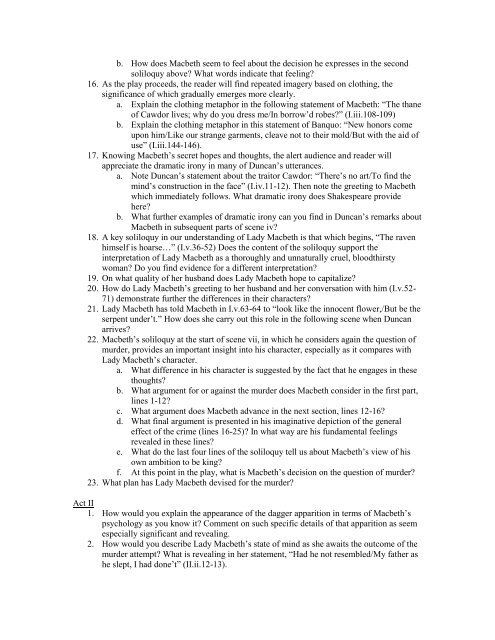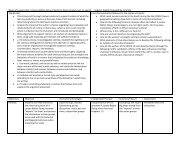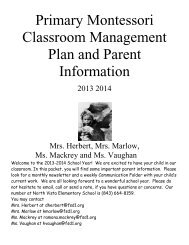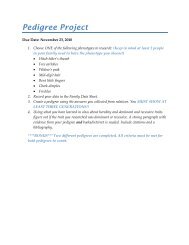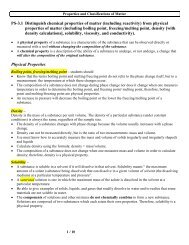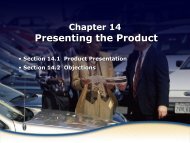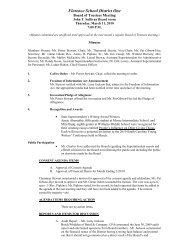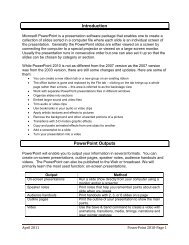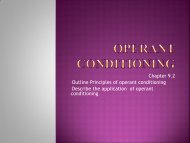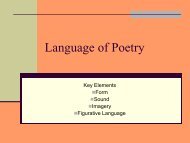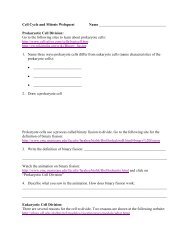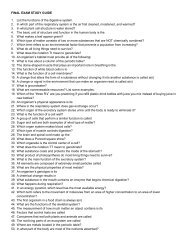Macbeth Study Guide Questions
Macbeth Study Guide Questions
Macbeth Study Guide Questions
- No tags were found...
You also want an ePaper? Increase the reach of your titles
YUMPU automatically turns print PDFs into web optimized ePapers that Google loves.
. How does <strong>Macbeth</strong> seem to feel about the decision he expresses in the secondsoliloquy above? What words indicate that feeling?16. As the play proceeds, the reader will find repeated imagery based on clothing, thesignificance of which gradually emerges more clearly.a. Explain the clothing metaphor in the following statement of <strong>Macbeth</strong>: “The thaneof Cawdor lives; why do you dress me/In borrow’d robes?” (I.iii.108-109)b. Explain the clothing metaphor in this statement of Banquo: “New honors comeupon him/Like our strange garments, cleave not to their mold/But with the aid ofuse” (I.iii.144-146).17. Knowing <strong>Macbeth</strong>’s secret hopes and thoughts, the alert audience and reader willappreciate the dramatic irony in many of Duncan’s utterances.a. Note Duncan’s statement about the traitor Cawdor: “There’s no art/To find themind’s construction in the face” (I.iv.11-12). Then note the greeting to <strong>Macbeth</strong>which immediately follows. What dramatic irony does Shakespeare providehere?b. What further examples of dramatic irony can you find in Duncan’s remarks about<strong>Macbeth</strong> in subsequent parts of scene iv?18. A key soliloquy in our understanding of Lady <strong>Macbeth</strong> is that which begins, “The ravenhimself is hoarse…” (I.v.36-52) Does the content of the soliloquy support theinterpretation of Lady <strong>Macbeth</strong> as a thoroughly and unnaturally cruel, bloodthirstywoman? Do you find evidence for a different interpretation?19. On what quality of her husband does Lady <strong>Macbeth</strong> hope to capitalize?20. How do Lady <strong>Macbeth</strong>’s greeting to her husband and her conversation with him (I.v.52-71) demonstrate further the differences in their characters?21. Lady <strong>Macbeth</strong> has told <strong>Macbeth</strong> in I.v.63-64 to “look like the innocent flower,/But be theserpent under’t.” How does she carry out this role in the following scene when Duncanarrives?22. <strong>Macbeth</strong>’s soliloquy at the start of scene vii, in which he considers again the question ofmurder, provides an important insight into his character, especially as it compares withLady <strong>Macbeth</strong>’s character.a. What difference in his character is suggested by the fact that he engages in thesethoughts?b. What argument for or against the murder does <strong>Macbeth</strong> consider in the first part,lines 1-12?c. What argument does <strong>Macbeth</strong> advance in the next section, lines 12-16?d. What final argument is presented in his imaginative depiction of the generaleffect of the crime (lines 16-25)? In what way are his fundamental feelingsrevealed in these lines?e. What do the last four lines of the soliloquy tell us about <strong>Macbeth</strong>’s view of hisown ambition to be king?f. At this point in the play, what is <strong>Macbeth</strong>’s decision on the question of murder?23. What plan has Lady <strong>Macbeth</strong> devised for the murder?Act II1. How would you explain the appearance of the dagger apparition in terms of <strong>Macbeth</strong>’spsychology as you know it? Comment on such specific details of that apparition as seemespecially significant and revealing.2. How would you describe Lady <strong>Macbeth</strong>’s state of mind as she awaits the outcome of themurder attempt? What is revealing in her statement, “Had he not resembled/My father ashe slept, I had done’t” (II.ii.12-13).


